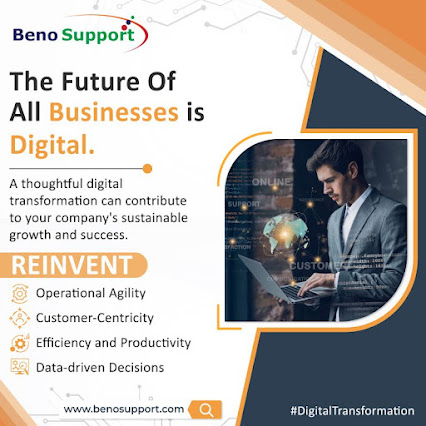AI in Recruiting: Securing the Future of Your Recruitment Process
The rapid progress of technology has resulted in significant transformations across various industries, including recruitment. With traditional hiring processes facing challenges such as skill shortages, time-consuming manual tasks, and unconscious biases, the integration of artificial intelligence (AI) has emerged as a promising solution.
In this article, we will explore the potential of AI in revolutionizing the recruitment landscape. We will delve into the current trends and innovative practices that can help future-proof your hiring process, ensuring efficiency, enhanced candidate sourcing, and the mitigation of human biases.
What is AI in Recruiting?
AI encompasses a range of technologies, including machine learning and natural language processing (NLP). In the context of recruitment, AI acts as a powerful assistant, automating tasks and empowering TA specialists with data-driven insights. These boost Efficiency and Enhancing Candidate Selection.
The integration of artificial intelligence (AI) in recruitment has revolutionized the way organizations attract and select top talent. By automating resume screening and application monitoring, AI technology frees up HR personnel to focus on strategic talent acquisition initiatives. This approach intelligently matches candidates to job openings based on their qualifications, experience, and skills, resulting in improved recruiting decisions.
One of the key advantages of AI-driven recruitment is its ability to eliminate human biases by relying on objective criteria rather than subjective judgments. This fosters workplace diversity, equity, and inclusion, leading to better culture development within organizations.
Moreover, AI-powered recruitment chatbots and virtual recruiters provide candidates with a more engaging and personalized application experience. This not only enhances their perception of the organization but also creates a positive impression of the company's commitment to innovation and technology.
Understanding the Revolution of AI in Recruitment
Utilizing Advanced Technologies for Streamlined and Efficient Recruitment Processes
According to a survey conducted by the Society for SHRM study, the majority of HR departments (79%) leverage AI and automation to expedite and optimize their recruitment and hiring processes. These advanced technologies play a crucial role in speeding up the employment process, ensuring efficiency, and improving overall outcomes.
Firstly, it greatly improves efficiency and speed by enabling faster application processing and identification of top candidates. Automation of tasks like resume screening and initial candidate assessment through AI-powered Applicant Tracking Systems (ATS) streamlines the recruitment workflow, allowing HR professionals to focus on strategic talent acquisition initiatives.
Secondly, AI-driven algorithms intelligently match candidates to job roles based on their qualifications, experience, and skills, leading to enhanced candidate sourcing and selection. With access to extensive databases of candidate profiles and job requirements, AI systems accurately identify potential matches, saving recruiters time on manual candidate finding and shortlisting. Additionally, AI-generated reports provide data-driven insights that have the potential to revolutionize recruitment and selection processes.
Lastly, AI eliminates hiring prejudice by employing objective criteria instead of subjective judgments. By analyzing candidate data solely based on qualifications and performance indicators, AI systems minimize unconscious biases related to names, gender, and education, ensuring fair and unbiased application assessment.
Organizations that have implemented AI-powered recruitment software tools have reported remarkable improvements in recruitment efficiency, including significant reductions in time-to-fill positions and cost-per-hire. These advancements highlight the transformative impact of advanced technologies in optimizing recruitment processes and promoting unbiased candidate selection.
Identifying Current Recruitment Challenges
One of the persistent problems across industries is talent shortages, which make it increasingly difficult to find candidates with the necessary skills and qualifications. This scarcity of qualified talent poses a significant hurdle in the recruitment process.
Manual recruitment processes are time-consuming, causing delays that hinder productivity and increase the risk of losing top talent to competitors with faster hiring procedures.
Furthermore, unconscious biases present a critical challenge in the hiring process. These biases, often unintentional, can influence decision-making and hinder the objective evaluation of candidates.
Recognizing these challenges allows organizations to appreciate the value of AI. AI-powered solutions address talent shortages, streamline recruitment, and mitigate biases, transforming how top talent is attracted and selected.
Best Practices in Integrating AI in Recruitment
While AI offers immense potential, successful implementation requires careful planning and a human-centric approach. Here are a few recommended practices to consider:
Focus on Human-Machine Collaboration: Leverage AI for its strengths in data analysis and automation, but remember that human judgement, empathy, and relationship-building are still crucial aspects of recruitment.
Start Small & Scale Gradually: Begin by integrating AI for tasks like resume screening and progress to more complex applications as your team becomes comfortable with the technology.
Ensure Transparency: Use tools that explain the reasoning behind AI-driven decisions. This fosters trust and allows for a fairer and more transparent recruitment process.
Mitigate Bias: Proactively monitor and address potential biases in AI algorithms. Ensure your AI tools are trained on diverse datasets to minimize bias based on factors like gender, race, or age.
Invest in Training: Provide your team with training on how to use AI tools effectively and how to interpret AI-generated data.
AI is not a cure-all, but rather a potent instrument that can revolutionize talent recruitment. Embracing AI and incorporating a human-centered strategy can enable Talent Acquisition Services, Talent Acquisition Consultancies, and HR Management service providers to establish a recruitment process that is future-proof, attract top talent, and assemble high-performing teams for their clients.
.jpg)
.jpg)

Comments
Post a Comment